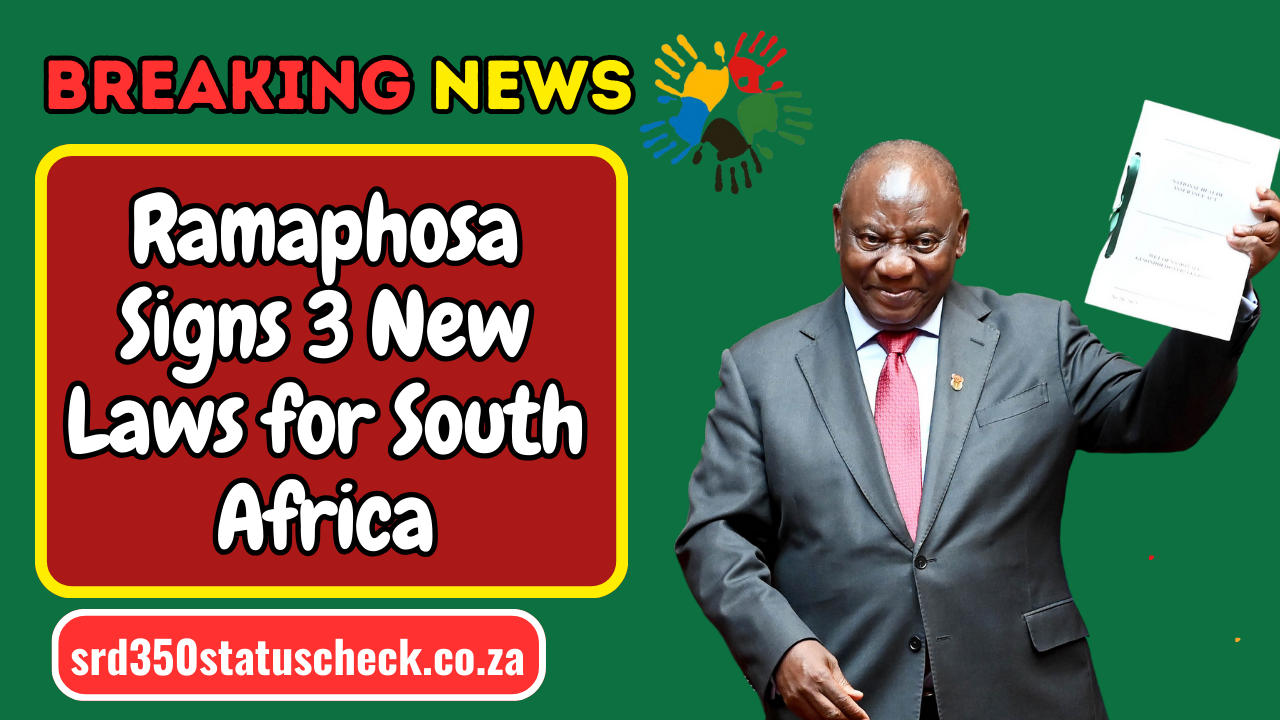Ramaphosa Signs 3 New Laws for South Africa
President Cyril Ramaphosa signed three Bills into law on 23 July 2024 focusing on small business, climate change, and public procurement in South Africa. These include the Public Procurement, Climate Change, and the National Small Enterprise Bills, which have now become Acts of Parliament.
Public Procurement Act
Introduced by the Minister of Finance in late June of 2023, the legislation establishes a single framework that regulates public procurement, including preferential procurement, by all organs of state. The Public Procurement Act now applies to all departments, constitutional institutions, municipalities, municipal entities, and public entities.
Combatting Corruption in Procurement
South African public procurement has been notorious for various degrees of corruption. Notably, during the state capture commission, Chief Justice Raymond Zondo found that interference from members of the executive in the procurement function of government was one of the ways state capture thrived.
Learn more about government measures in SASSA Social Grants Corruption Revealed.
In response to these findings, Ramaphosa said that “apart from the abuse of procurement for the purposes of state capture, the country’s procurement system currently faces challenges of professional capacity, fragmentation, and operational flexibility.” As one of the intervening steps, the Public Procurement Bill was introduced.
Enhancing Transparency and Integrity
“The Laws for South Africa seeks to enhance transparency and integrity, among others, to combat corruption, ensure efficient, effective, and economic use of public resources, and advance transformation and broadened economic participation,” said the Presidency in a statement. For additional context on legislative changes,
check SASSA Grants Registration 2024.
Prohibitions and Applications
The Act prohibits bids from individuals such as public office holders, parliamentary and provincial legislature employees, as well as officials of public entities, constitutional bodies, municipalities, and their entities. It applies to all procurement carried out by a procurement institution, including procurement through donor or grant funding, any person who submits a bid or has been awarded a bid, and all procurement carried out by any person on behalf of a procuring institution.
Rooted in the Constitution
Legal experts at Webber Wentzel, Rodney Africa, Adriano Esterhuizen, Daveraj Sauls, and Danica Jonker explained that the legislation is rooted in Section 217 of the Constitution, which deals with procurement. “Public procurement is currently regulated by various statutes, regulations, and statutory instruments,” thus fragmented, explained the experts.
Explore more about legal reforms at South Africa Government Vacancies 2024.
Aligning with Constitutional Requirements
The Presidency stated that the Act now aligns procurement policy with Section 217 of the Constitution, which requires fair, equitable, transparent, competitive, and cost-effective procurement by state organs across all government levels, with national legislation outlining that policy framework.
Climate Change Act
The Climate Change Bill, introduced by the Minister of Forestry, Fisheries and the Environment in 2022, sets out a national climate change response, including mitigation and adaptation actions, which also constitutes South Africa’s fair contribution to the global climate change response.
Aligning Policies for Climate Response
It “enables the alignment of policies that influence South Africa’s climate change response, to ensure that South Africa’s transition to a low carbon and climate-resilient economy and society is not constrained by policy contradictions,” said the Presidency.
For more on climate initiatives, check SASSA R370 SRD Grant Ending in 2025.
Boosting Green Economy and Climate Resilience
The Laws for South Africa that aims to boost South Africa’s capacity to cut greenhouse gas emissions and enhance climate resilience, while minimizing job losses by boosting the green economy. It also aims to improve coordination among national departments to support South Africa’s commitments under the Paris Agreement’s Nationally Determined Contributions (NDC), which outline our goals for reducing emissions.
Role of the Presidential Climate Commission
It formally sets out the functions of the Presidential Climate Commission, which includes providing advice on the Republic’s climate change response to ensure “the long-term just transition to a climate-resilient and low-carbon economy and society.”
Learn more about sustainable development at SASSA Disability Grant.
Provincial and Municipal Roles
The Laws for South Africa also stipulates the role provinces and municipalities will play in mitigation efforts.
Related FAQs
Q: What is the main goal of the Public Procurement Act?
A: The main goal is to enhance transparency and integrity in public procurement to combat corruption and ensure the efficient use of public resources.
Q: How does the Climate Change Act support South Africa’s commitments under the Paris Agreement?
A: It improves coordination among national departments and sets out actions to boost climate resilience and cut greenhouse gas emissions, aligning with the Paris Agreement’s Nationally Determined Contributions (NDC).
Q: Who is prohibited from bidding under the Public Procurement Act?
A: Public office holders, parliamentary and provincial legislature employees, and officials of public entities, constitutional bodies, and municipalities are prohibited from bidding.
Read More: Check your SASSA Application Status

